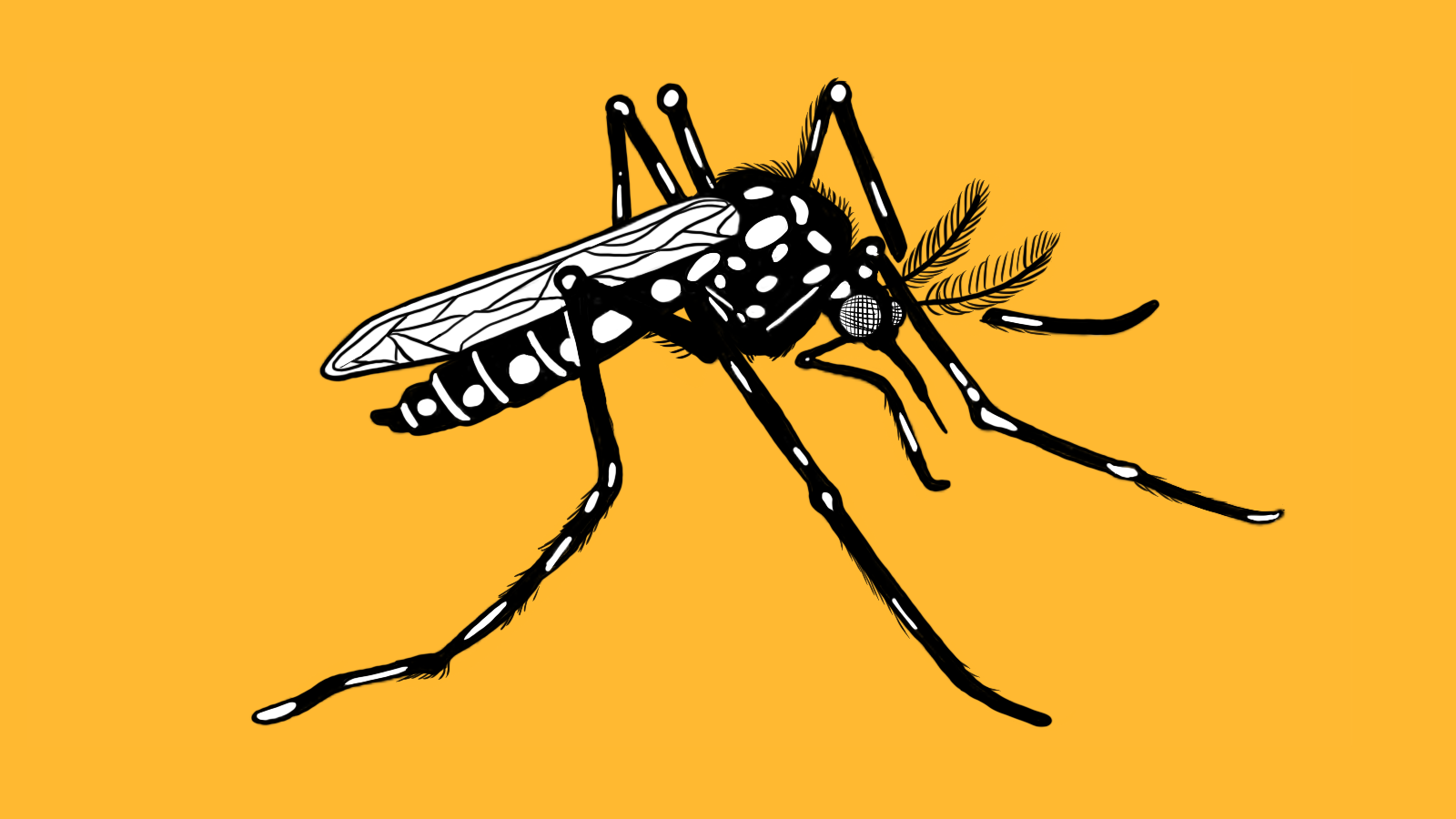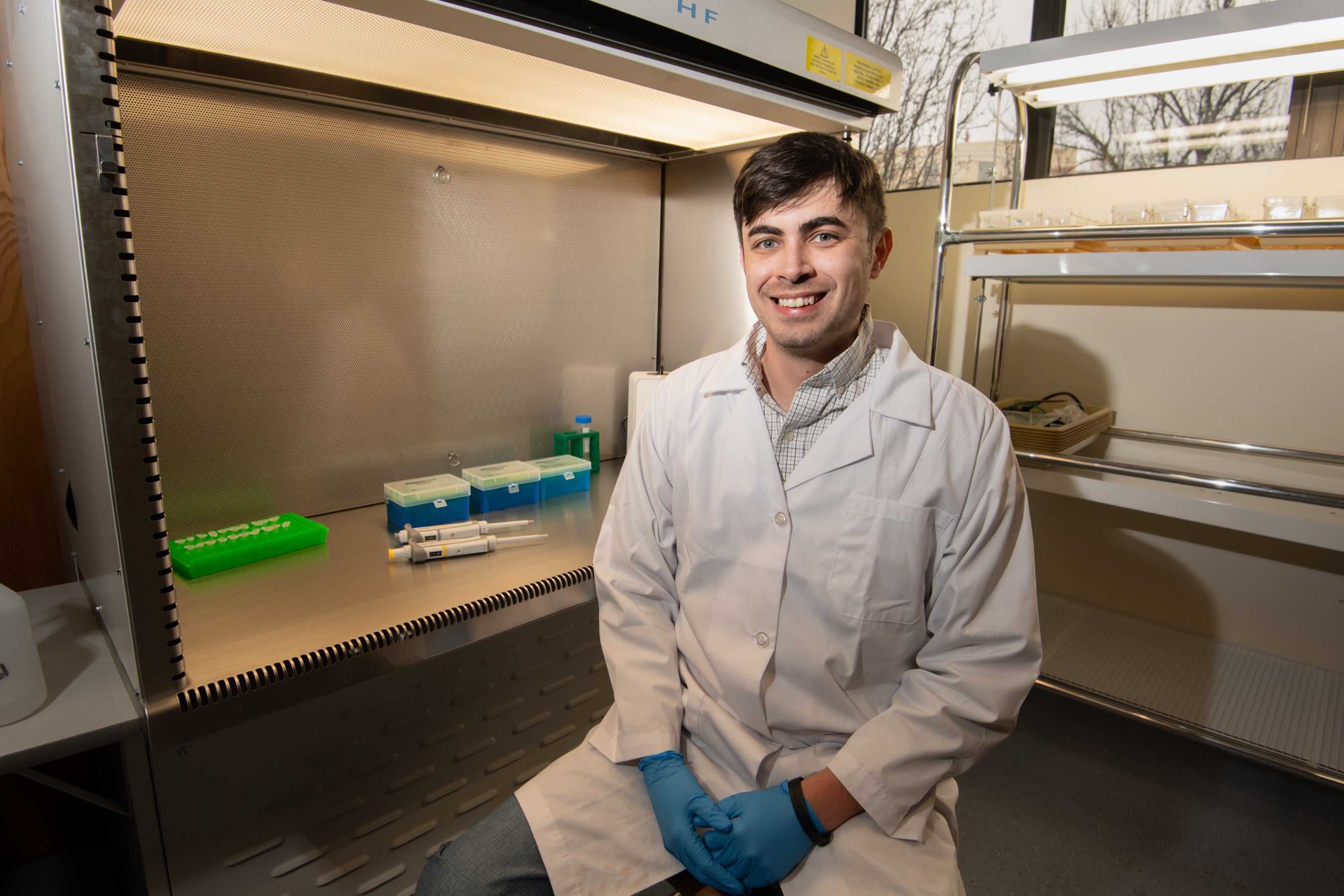
Aedes aegypti is a mosquito whose musical Latin name belies its true identity as the ‘yellow fever mosquito.’ Yellow fever is a deadly viral infection spread solely through the bite of this species. It disproportionately impacts the impoverished people of developing tropical and subtropical nations, though it also can be found in the southeastern portion of the United States. According to the Center for Disease Control (CDC), this disease effects an estimated 200,000 people per year. The mosquito spreads not only yellow fever, but also dengue virus, which infects up to 400 million people every year, zika virus and other harmful pathogens.
For Boise State alumnus Jonas Frankel-Bricker (MS, biology, ‘19), studying the microscopic communities of fungi and bacteria living on and within adult mosquitos and their larvae can reveal crucial information about how mosquitos contract pathogens, as well as how they may perhaps be treated to make them less dangerous to global human health.
These kinds of microscopic communities living upon a single host organism are referred to as microbiomes. Similarly to the way a coral reef is characterized by the certain species of plants and animals that call that environment home, so too can a single creature be a biome for a host of tiny living organisms.
In other words, Frankel-Bricker’s research unpacks the microbiomes living in and on a mosquito at different stages of its life cycle. While pursuing his masters degree in biology at Boise State, Frankel-Bricker introduced spores from a widespread gut fungus (Zancudomyces culisetae) to mosquito larvae, and then monitored how it impacted the microbiome of the insect.

“Essentially what I was looking at is how this fungal infection impacts the microbiome, and whether that has downstream effects on the adults,” said Frankel-Bricker. “So I grew all these mosquitoes starting from eggs and some of them I fed the fungus to and some of them I didn’t.”
Frankel-Bricker discovered that the presence of Z. culisetae within and on the larva and adult mosquitoes had an enormous impact on the insect’s microbiome diversity. Adults developing from larvae that received the fungus had a more even distribution of bacterial families, whereas untreated adults hosted overabundant amounts of certain microbes. Further, certain kinds of bacteria were differentially impacted by the fungus.
Why is this important? Because there is evidence that mosquito microbiomes can affect their survival and their capacity to contract and transmit diseases. The more information that researchers like Frankel-Bricker can uncover about these highly underestimated aspects of mosquito health, the more information can be added to the arsenal on treating the species responsible for 30,000 yellow fever deaths per year, according to the CDC.
“What was really interesting to me was that other studies showed certain microbes in adults influence whether the adults can contract diseases or not. So you have all these different interactions — many of them aren’t actually known — but all these interactions between bacteria, and the host mosquito in this case could affect global human health,” said Frankel-Bricker.
New methods of mosquito treatment involve fungal pesticides. To ensure that these and other pesticides work properly, it’s essential that researchers discover as much as possible about the insect’s microbiome and fungal-bacterial-host dynamics.
Frankel-Bricker’s research was conducted with guidance from Boise State biology faculty Sven Buerki, Kevin P. Feris and Merlin M. White. His research, titled “Influences of a Prolific Gut Fungus (Zancudomyces culisetae) on Larval and Adult Mosquito (Aedes aegypti) – Associated Microbiota,” was accepted and published in the journal Applied and Environmental Microbiology (AEM).
Frankel-Bricker was recently hired by the Boise State biology department as a research assistant.
– By Brianne Phillips